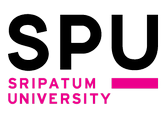Please use this identifier to cite or link to this item:
http://dspace.spu.ac.th/handle/123456789/9266Full metadata record
| DC Field | Value | Language |
|---|---|---|
| dc.contributor.author | Li Yang | th_TH |
| dc.contributor.author | Waraporn Thaima | th_TH |
| dc.contributor.author | Sirinthorn Sinjindawong | th_TH |
| dc.date.accessioned | 2023-07-28T00:50:43Z | - |
| dc.date.available | 2023-07-28T00:50:43Z | - |
| dc.date.issued | 2022-12 | - |
| dc.identifier.citation | Vol no. 9 No 3 (Sep-Dec 2022) | th_TH |
| dc.identifier.uri | http://dspace.spu.ac.th/handle/123456789/9266 | - |
| dc.description.abstract | An important problem in the development of Thai language department at present is a number of executive’s lack of management leadership that reflects on educational management. The objectives of this research were to: 1) study the change management in Thai language discipline of universities in Yunnan, China, 2) find a guideline for the change management in Thai language discipline of universities in Yunnan, China; and 3) assess a management guideline for the change in Thai language courses of universities in Yunnan Province, China. A group chat was used as quantitative research, using a questionnaire. The 5-level estimation scale was a tool for collecting data. Samples in this research study were administrators, teachers and staffs. A total of 126 participants were randomized using multistage randomization. Data were analyzed using descriptive statistics by mean and standard deviation and content analysis. The results of the research revealed that a study on the change management in Thai language discipline of universities in Yunnan, China.An overall picture was that when considering the aspect from the highest to the least average, it was found that the top 4 were leadership of the executives, vision of the executives, personnel in change management, and change management structure, respectively. In addition, an assessment of the appropriateness and feasibility of the change management in Thai language discipline of universities in Yunnan, China found that the overall average was at a high level. Article 3 translates the vision of Thai language discipline into policies, plans, strategies, work plans, structures and activities, with approach questions number 6 open to opportunities. Engaging personnel to participate in the promotion and development of potential had the highest average with the highest mean, followed by the first approach defining a vision that facilitates change. Managing work were resulted from the participation of personnel and Article 5 had a policy to create incentives set environment and create engagement of personnel. There were high averages.The guidelines for the change management in Thai language discipline of universities in Yunnan,China were 6 items. In an overall, all items were appropriate and feasible. | th_TH |
| dc.language.iso | en | th_TH |
| dc.publisher | International Journal of Management, Business, and Economics (IJMBE), | th_TH |
| dc.subject | Change ManagementConcept | th_TH |
| dc.subject | Change Management Components | th_TH |
| dc.subject | Thai Language Discipline | th_TH |
| dc.subject | Yunnan Province | th_TH |
| dc.subject | China | th_TH |
| dc.title | A Guideline on the Change Management in Thai Language Programs at Universities in Yunnan Province, China. | th_TH |
| dc.type | Article | th_TH |
| Appears in Collections: | GRA-02. บทความวิชาการ/วิจัย (วารสารระดับชาติ) | |
Files in This Item:
| File | Description | Size | Format | |
|---|---|---|---|---|
| IJMBE Li Yang 2022.pdf | 1.91 MB | Adobe PDF | View/Open |
Items in DSpace are protected by copyright, with all rights reserved, unless otherwise indicated.
Admin Tools
